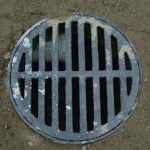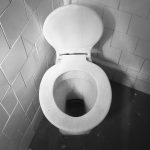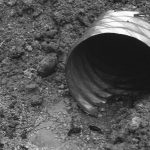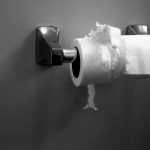When
plumbing pipes age, it’s not unusual for small leaks to occur and they will get worse over time. There is no need to allow your pipes to age this way without taking measures to prolong their useful life as long as possible. This will help you to prevent or limit the leaks and save money in the long run. In this article, we will take a closer look at a couple of things that you can do to reduce the stress on your pipes to make them last longer.
Using a Lower Water Pressure
We all enjoy living in a home that has high water pressure whenever we want it. Showering feels great when the water pressure is high and water using appliances work more effectively. As good as high water pressure is, it does have a downside for your home. The high pressures involved can cause severe damage to plumbing fixtures, such as valves, faucets, joints and the pipes. If you lower the water pressure, you can reduce the stress on your plumbing and extend the life of your fixtures and pipes.
Start by measuring your water pressure accurately. This can be done with a hose bib gauge, or you could ask a local plumber to help you. Ideally, the water pressure in your home should register somewhere between 40-85 psi. A water pressure higher than 85 psi should be lowered with a pressure regulator to get it under control.
Many people believe that they can regulate the water pressure in their homes at the point of use. This is incorrect; a low flow faucet or shower head will not reduce the water pressure at all. These devices will only control how much water is dispensed when the shower or faucet is used.
Using Softer Water Instead
Many of us live in areas with hard water, and this can seriously affect the plumbing systems in your home. Over time, hard water will deposit calcium and magnesium sediments in your plumbing and fixtures. This will gradually build up inside the pipes, the flow of water will be restricted, and the joints and other fittings may even start to corrode. This is a serious problem, the joints and fittings are vital to keeping your pipes connected, and these are prime areas for leaks to occur.
Start to correct the issue by inspecting your shower heads, faucets and any other surfaces located near your plumbing fixtures. If you find any white colored deposits or stains this a telltale sign that you have a hard water problem. If you have a well water system, a water test will reveal the level of hardness in your water. Any figure over 140 ppm is an indication of hard water, and the problem needs to be addressed.
The best way to get rid of hard water is to install a modern water softener system. There are many different types available to suit a wide variety of water quality issues, and there will be one to suit your needs. A local plumber will be able to advise you on the right water softener to install to satisfy all of your needs.
By Giovanni Longo President Flood Brothers Plumbing
Giovanni Longo is a 3rd generation master plumber who has been practicing his craft and trade in the greater Los Angeles area for well over a decade and a half. A plumbing and hydraulics-engineering innovator, Giovanni’s particular world-class expertise focuses on dealing with challenging sewer system designs as well as resolving complex commercial and residential draining issues. As a certified Flood Mitigation expert, he is also well versed in a wide variety of water damage and remediation solution.





